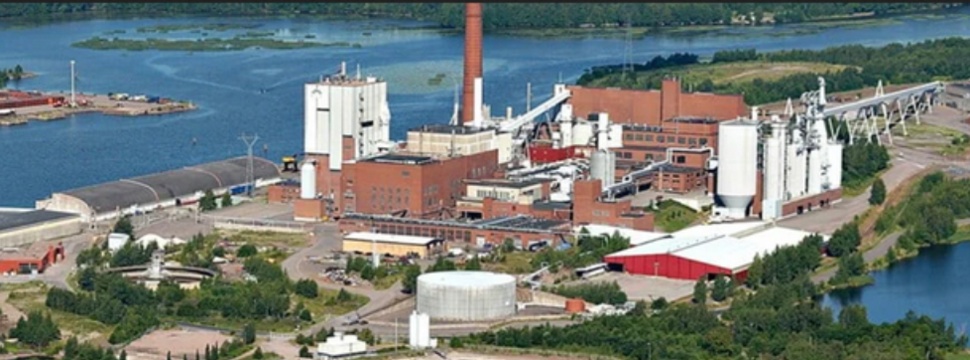Stora Enso plans restructuring actions to improve long-term competitiveness and profitability
News General news
Stora Enso is planning restructuring actions to strengthen the Group’s long-term competitiveness, improve profitability and focus capital allocation in strategic growth markets. Stora Enso is also taking the next step in driving a decentralised operating model targeting increased customer centricity, business focus and cost reductions. The planned restructuring actions, combined with previously initiated negotiations in the Packaging Materials division, would result in total reductions of approximately 1,150 employees.

• Stora Enso plans to permanently close down its Sunila pulp production unit in Finland, the De Hoop containerboard site in the Netherlands, one containerboard line at its Ostrołęka site in Poland, and the Näpi sawmill in Estonia. The closures would target a reduction of approximately 600 employees.
• Stora Enso will initiate change negotiations regarding a planned reduction of office employees within its Group functions. Approximately 1,300 employees are within the scope of the Group function negotiations, with a planned reduction of approximately 300 employees.
• Stora Enso has recently completed a majority of the change negotiations in its Packaging Materials division with a reduction of approximately 250 positions in its management and support functions.
The planned restructuring actions would decrease Stora Enso’s annual sales by approximately EUR 380 million, based on the 2022 figures. Operational EBIT is expected to improve by approximately EUR 110 million annually. Stora Enso will record approximately EUR 130 million non-cash asset impairments related to the planned closures, and approximately EUR 60 million costs relating to the potential lay-offs and restructuring expenses in its Q2/2023 results as an item affecting comparability (IAC) with cash outflows impacting future quarters.
“These measures are of course very difficult and would not be proposed unless it was absolutely necessary for our long-term competitiveness. We are at a critical juncture in our strategy advancement, and to further our market position an increased focus on capital allocation and decentralised empowerment is needed. This sadly means that assets suffering from challenged profitability would need to be closed, in combination with a more streamlined headquarter organisation. Through these actions we would be able to continue to deliver strategic growth from a more resilient and cost-efficient business platform, better equipped to support the long-term growing demand for Stora Enso’s renewable products,” says Annica Bresky, Stora Enso’s President & CEO.
No decisions regarding the planned closures and employee reductions will be taken until the change negotiations have been concluded according to local regulations. Stora Enso would be committed to work closely together with other Stora Enso locations, the local community, and other stakeholders to support in re-employment and training of the possibly affected employees.
Planned closure of the Sunila pulp production in Finland in the Biomaterials division
Stora Enso will start change negotiations with employees at its Sunila pulp production unit to permanently cease pulp production and lignin extraction. The Finnish wood market has been structurally impacted by increased competition for pulp wood and stopped wood imports from Russia. Under these new conditions, resulting in significantly higher wood costs, the Sunila site is no longer cost-competitive.
The site has an annual capacity of 375,000 tonnes of long-fiber pulp, employing approximately 270 people. The planned closure would take place during the second half of 2023 and affect an estimated 250 employees, decreasing Stora Enso’s annual market pulp capacity by 13%.
The Group’s strategy for developing biomaterial innovations remains unchanged. The pilot facility for hard carbon-based battery material continues to operate at the Sunila site. A feasibility study for lignin extraction has been initiated at Stora Enso’s Skutskär pulp production site in Sweden. The Group also continues to develop other sourcing alternatives, including partnering, for long-term lignin supply, and to investigate competitive locations for commercial scale up of hard carbon, Lignode, production.
Planned restructurings in the Packaging Materials division
As a consequence of the overcapacity in the European containerboard market, Stora Enso is proposing to permanently close down both production lines at the De Hoop site in the Netherlands and one of the four production lines at its Ostrołęka site in Poland. These planned closures would enable an improved market balance for containerboard volumes, thus benefiting Stora Enso’s supply from larger and more cost-efficient production sites.
The De Hoop site, part of the De Jong Packaging acquisition in 2023, employs approximately 185 people and has a total annual capacity of 380,000 tonnes of containerboard, honeycomb and plasterboard. The production line in Ostrołęka has an annual capacity of 120,000 tonnes of recycled containerboard and the negotiations impact approximately 50 people. These production lines are not long-term cost competitive in this new market environment. Stora Enso would continue to serve its containerboard customers from other production sites. Subject to the outcome of the negotiations, the planned closures would take place during the fourth quarter of 2023.
The Packaging Materials division has also conducted a review of its management and support functions to improve costs and efficiency. A majority of the change negotiations are being completed, resulting in a reduction of approximately 250 positions over the period of 2023–2024.
Planned closure of the Näpi sawmill in Estonia in the Wood Products division
Stora Enso plans to close down its Näpi sawmill in Estonia due to reduced long-term raw material availability, increased wood costs and low profitability. Stora Enso plans to improve the competitiveness of its total wood products business by focusing on the sawmills with strategic growth opportunities.
The Näpi sawmill has an annual capacity of 50,000 m3 of sawn timber, 180,000 m3 of further processed wood products and 25,000 tonnes of pellets. The planned closure would take place during the fourth quarter of 2023 and directly impact 100 employees in Estonia.
Change negotiations in Group functions
Stora Enso continues its journey towards a decentralised operating model with the target to increase customer centricity, business focus and divisional accountability. To support this direction, Stora Enso starts change negotiations regarding its plan for a more streamlined Group functions organisation with increased business centricity and reduced overhead costs. The negotiations concern approximately 1,300 employees currently working in Group functions, with the plan of reducing approximately 300 positions in the Group’s European offices.










